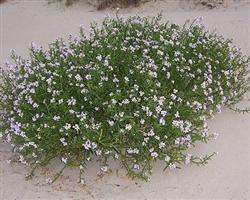Wetlands are slowly but surely shrinking on the world map, dooming thousands of rare species of plants and animals to extinction. In Europe, the phenomenon is particularly visible in the Mediterranean region, and the Black Sea coast. How to save the biodiversity of coastal lagoons and salt pans - a pilot project under the 'Life Plus' program of the EU, which includes three countries - France, Italy and Bulgaria, aims to give an answer to this question.

© Photo: wikipedia.org
Among these countries only Bulgaria has no problems with its salt pans near the Pomorie and Atanasovo lakes as they are still active and maintain a specific variety of animals and plants, accustomed to live in salty environment. In this regard, more work on the project will have environmentalists from the Regional Molentargius-Saline Natural Park in Italy, and the Regional Natural Park "Camargue" in southern France. Many salt pans there are now closed, including the largest in Europe, "Salin de Giraud" in the Camargue. This is a threat to many rare species that originated in them over many years, sometimes centuries of exploitation. Participants in the international project will be looking for a way out of the situation. A pilot project for the management of the Cevia Salts region in Italy will also be developed.
Bulgaria will join its partners in the project "Environmental Management and Preservation in Mediterranean coastal lagoons and salt pans - MC SALT" in respect to marine lagoons, such as the Pomorie Lake, near the city of Burgas. The scope of the project also includes other protected salty areas in participating countries.

The main objective in Bulgaria will be the removal of two invasive plant species, suffocating typical vegetation on dunes near the lake. Dimitar Popov of the "Green Balkans" environmental organization which manages the project in Bulgaria brings us more.
“These are basically two types of shrubs: Amorpha fruticosa and Spartium junceum, which are foreign to our flora. They come from North America and are extremely adaptable. Most often used for strengthening embankments in road construction, they have spread to many other places. In the protected zone "Pomorie Lake" these species spread to sand dunes. Their thick bushes deteriorate several types of dune habitats where they suffocate native vegetation like ammophila arenaria or tamarix tetrandra.”

A great number of plant species grow on the sand dunes. One of these species is

Eryngium maritimum, listed in the Red Book of Bulgaria. One can find the Cakile maritime (European searocket), Crambe maritima , etc. "Pomorie Lake" is the habitat of the largest number of Trachomitum venetum, with its beautiful blue flowers.
The good news is that near Pomorie the development of the invasive species, which have very well developed root system and numerous seeds, is still in a relatively early stage and eradicating them is expected to be successful, Dimitar Popov says.
Another part of the project, which is implemented in Bulgaria, refers to the preservation of rare migratory birds and birds nesting near the lake. Target species are Ferruginous Duck, Kentish Plover, the flamingo and others.
“For the first time within the protected zone "Pomorie Lake" we are building nesting boxes, which are dug into the banks of the lake and create conditions for the breeding of the shelduck, the expert says. This is a duck, which, unlike most other species does not nest in the reeds, but in holes in the ground. Another task is building nesting platforms in the lake for other birds, which are protected by numerous national and international laws.”

Another important aim is the fight against a very serious and global problem affecting the coastal lagoons in the whole Mediterranean region, including the Black Sea. This is the threat of construction and turning the lagoons into urban areas.
English version: Alexander Markov
Phots: wikipedia.org
The Speaker of the National Assembly Natalia Kiselova will today award the winners of the 32nd Children's Easter Festival in the Serbian town of Bosilegrad. The children will compete in three categories – for the strongest, most beautiful and most..
A colorful Easter celebration under the slogan “Let’s sing and dance on Easter, on the square” will take place today in the open air in the town of Stara Zagora. A number of folklore groups and singers from the region will take care of the good..
Sugar artist Mariya Ozturk's latest masterpiece - a model of St Peter's Basilica in Rome - prompted us to reach out to our fellow Bulgarian during the bright holiday season. Though she’s been straddling life between Bulgaria and Istanbul for years, she..
Sugar artist Mariya Ozturk's latest masterpiece - a model of St Peter's Basilica in Rome - prompted us to reach out to our fellow Bulgarian during the..
The Bulgarian-American Cultural Association “Rosa” in Atlanta invited our compatriots to celebrate Easter today from 1:00 p.m. local time at..
Artist Vanya Petkova from Kardzhali paints non-traditional icons, depicting saints on ostrich eggs . She started about 15 years ago with images of Jesus..

+359 2 9336 661
